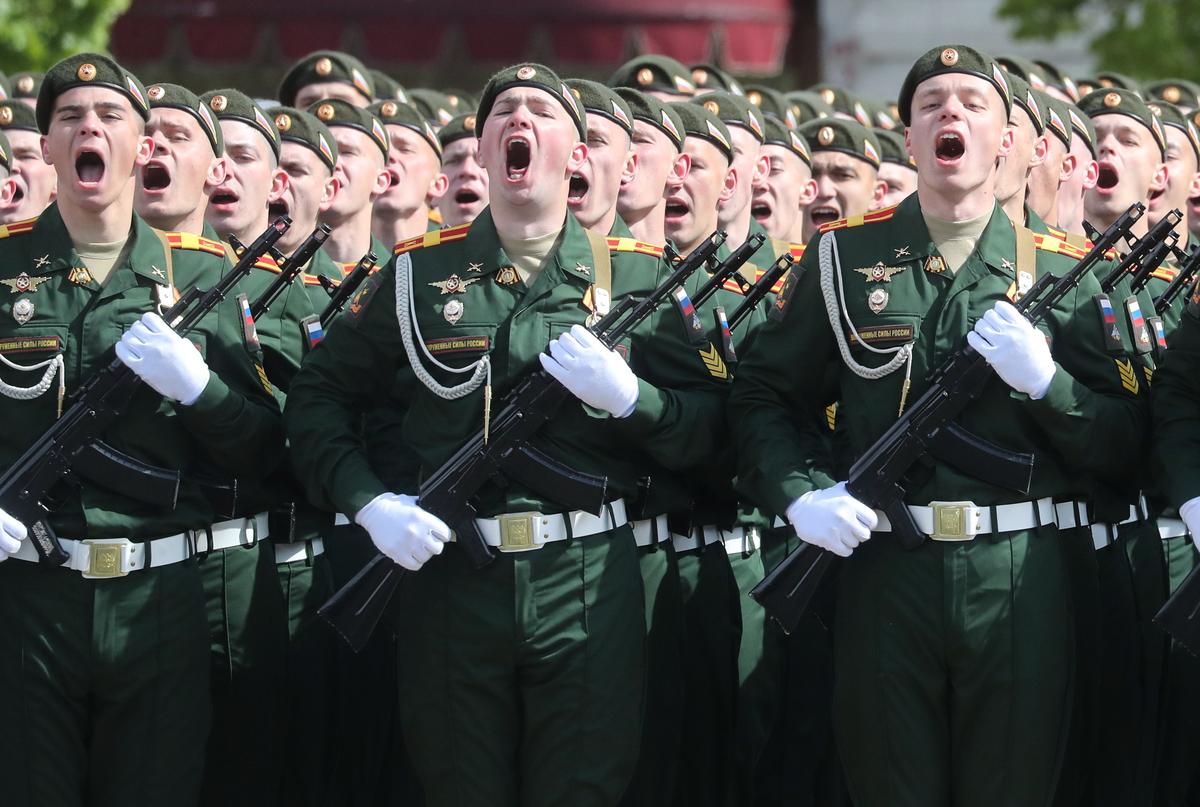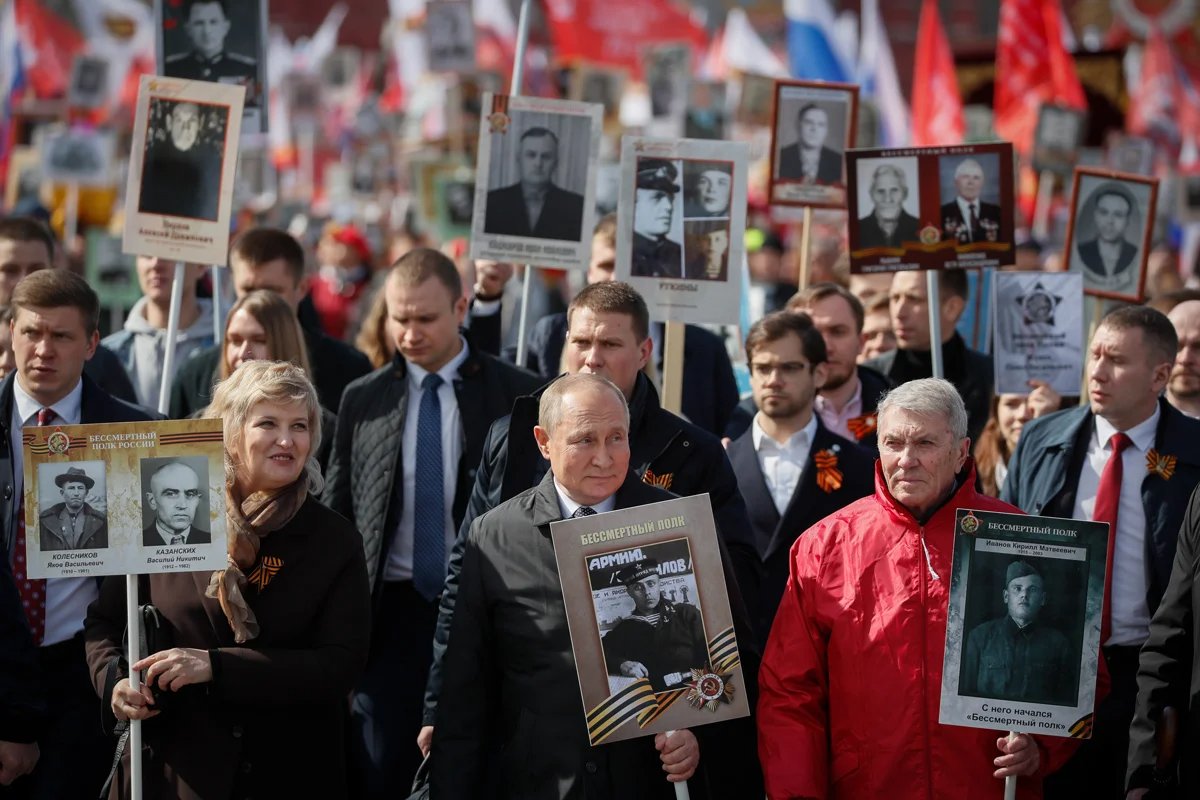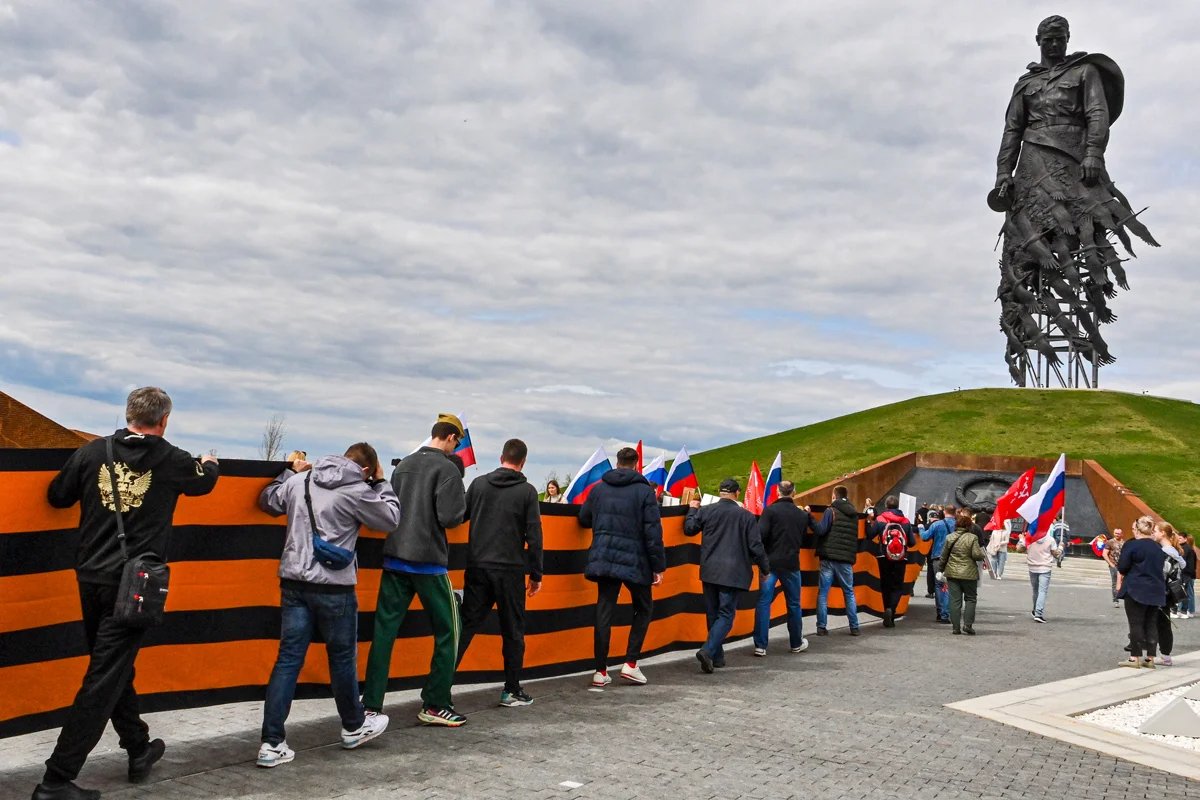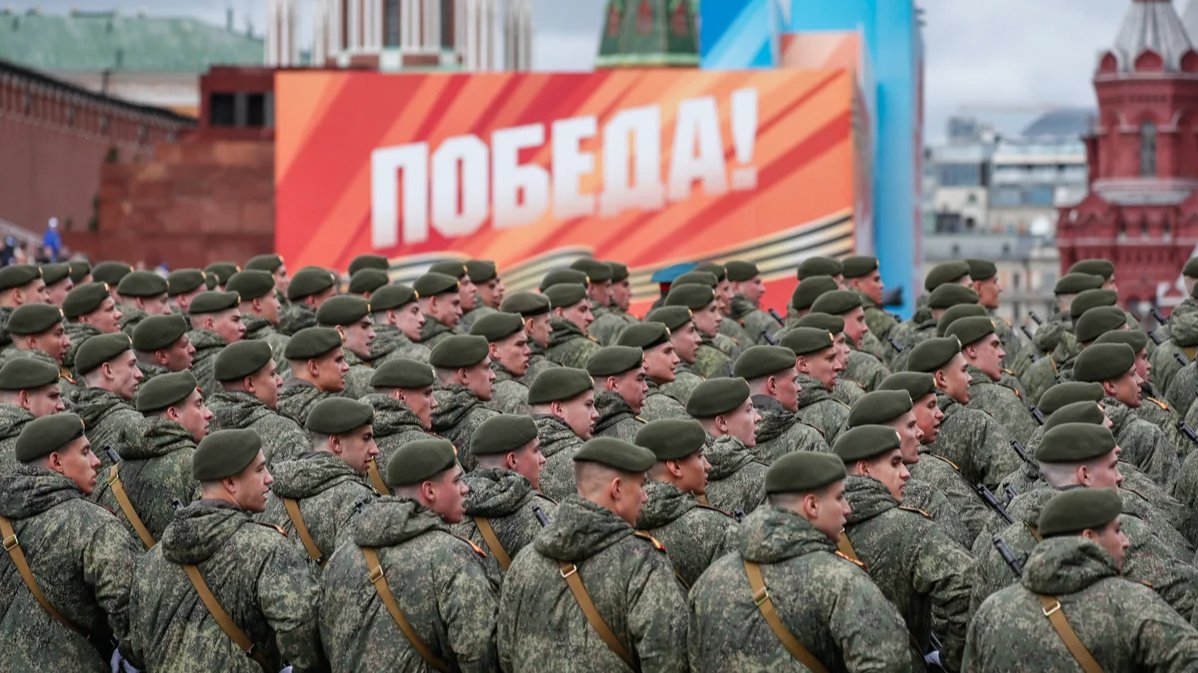The past two decades have seen the rampant exploitation of the collective national memory of World War II by the Russian government. Veneration of the Red Army’s military victory has acquired a cult-like status in today’s Russia that has made posing uncomfortable questions about the past taboo while also serving the political needs of the current government, principally by providing a justification for its invasion of Ukraine.
Over the course of the 2010s, the Russian state has progressively manipulated narratives around the Great Patriotic War — Russia’s name for the Soviet involvement in World War II — making it Russia’s central national myth.
While the rise in authoritarianism put an end to discussion of once highly emotive subjects such as democracy and human rights, harking back to Russia’s history, and to World War II in particular, continued to strike a chord with the public. In fact, given its relatability for almost every Russian family, it would have been deeply out of character for the Russian government not to mine this particularly tragic vein of Russian history.

Russian servicemen take part in the Victory Day military parade on Red Square in Moscow, 9 May 2024. Photo: EPA-EFE / MAXIM SHIPENKOV
Attempting to harness these memories for its own political ends, the state has promoted a historical narrative about World War II centred on one central premise, namely that Russians are the descendants of the vanquishers of Nazism.
Those in power have been able to reap political benefit by appearing at war memorials or museum openings, meeting with veterans, or simply by using the victory narrative in their speeches, all while feeling like great statesmen. The phenomenon can be seen in use throughout Russia, presenting opportunities for regional governments to win additional federal funding and grants by creating yet more schemes to promote and reinforce the state’s victory cult.
Selective amnesia
The Russian government’s World War II narrative is moulded around three main principles. First, it strenuously avoids mentioning key historical context that might prove awkward, such as the totalitarian reality of life under Stalin, or the traumatic consequences of the Soviet government’s war-time decisions.

Vladimir Putin joins colleagues in the Immortal Regiment parade, in which Russians hold up portraits of their relatives who fought in World War II, Moscow, 9 May 2022. Photo: Yuri Kochetkov / EPA-EFE
Red lines have gradually been drawn around subjects that are now off-limits, the most obvious example of which was the now-exiled independent TV channel Dozhd being dropped from satellite packages in 2014 after it conducted a survey asking viewers whether surrendering Leningrad to the Nazis could have saved the lives of the 800,000 people who died during the subsequent siege.
In another instance two years later, a doctoral student was denied his PhD after he submitted a thesis that dared to argue that the widespread Soviet collaboration with occupying German forces was a form of protest against Stalinism.
Second, the state’s contemporary recasting of the country’s World War II myth avoids any references to communism in an attempt to ensure that the collective memory of Russia’s wartime heroism is not sullied by the mass murder of innocent people under Stalin.
Third, and most importantly, whipping up patriotic fervour has allowed the lines between the war in Ukraine and World War II to become blurred. The continuity between the two conflicts is reinforced in Moscow’s annual Victory Day parade, which showcases present day Russian military prowess while nominally commemorating the Red Army’s capture of Berlin.
Parallel reality
The Kremlin’s distortion of collective Russian World War II memory also serves as a justification of the country’s current authoritarianism and stokes the Russian public’s desire to see a return of its once great empire, by stressing the liberation of several Soviet cities that now lie outside the country’s borders, such as Kyiv, Minsk and Vilnius.

Participants honour the fallen at the Rzhev Memorial in the Tver region, 28 April 2024. Photo: Maria Potokina / EPA-EFE
Reason and facts have been replaced with calls to emotion, making it impossible to engage in historical debate or even discussion, and permitting no space for those who dare to challenge the state narrative.
Misleading parallels equating Hitler to the West, and Ukrainians to Nazi collaborator Stepan Bandera only further stifle any dissent and have made those who disagree with state policy traitors in the eyes of much of the population.
For years, Putin’s government used the Soviet Union’s victory in World War II as the keystone to Russian national identity, but that notion became null and void the second Moscow trained its sights on Kharkiv and Kyiv. As a result, a new Russia has now emerged from this war — a country that has little in common with its previous incarnations in either the 1940s or the 1990s.
While Putin’s regime endures, the myth of the Great Patriotic War will live on. But if Russians opposed to the war in Ukraine do ultimately prevail, then its use in Putin’s crude historical rhetoric will inevitably devalue the Soviet Union’s vital role in World War II, and it will become an interesting case study into how the “heirs of victory” turned out in fact to be ideologically far closer to the Nazis than their putative enemies in Kyiv.
Join us in rebuilding Novaya Gazeta Europe
The Russian government has banned independent media. We were forced to leave our country in order to keep doing our job, telling our readers about what is going on Russia, Ukraine and Europe.
We will continue fighting against warfare and dictatorship. We believe that freedom of speech is the most efficient antidote against tyranny. Support us financially to help us fight for peace and freedom.
By clicking the Support button, you agree to the processing of your personal data.
To cancel a regular donation, please write to [email protected]

